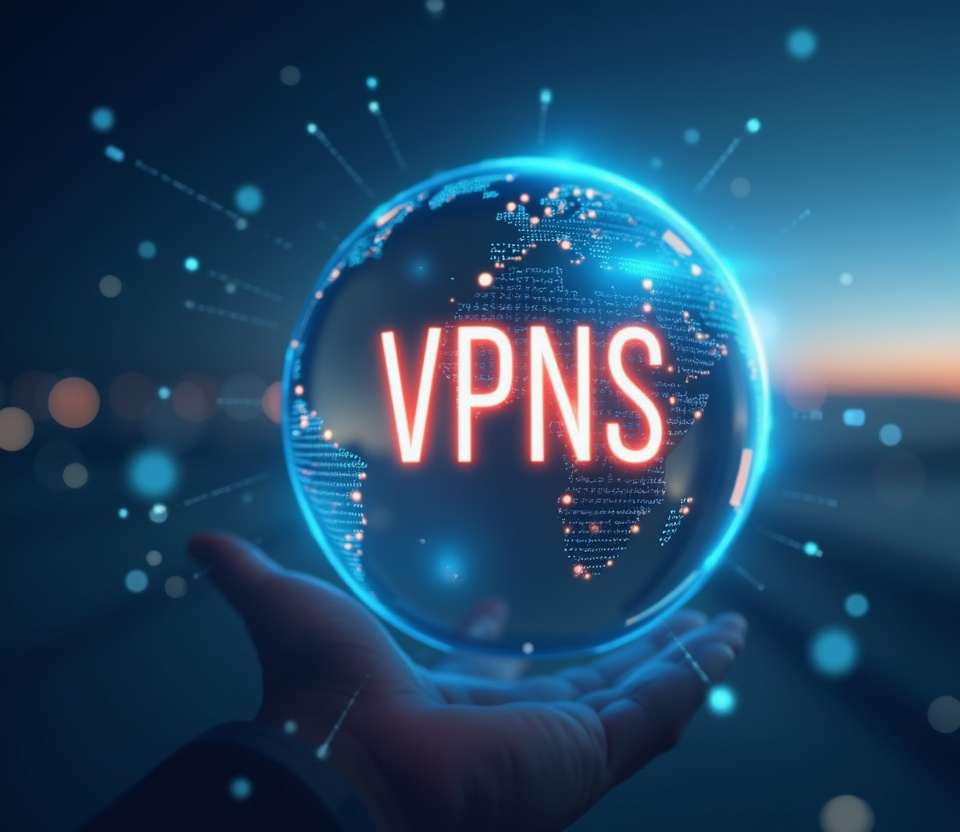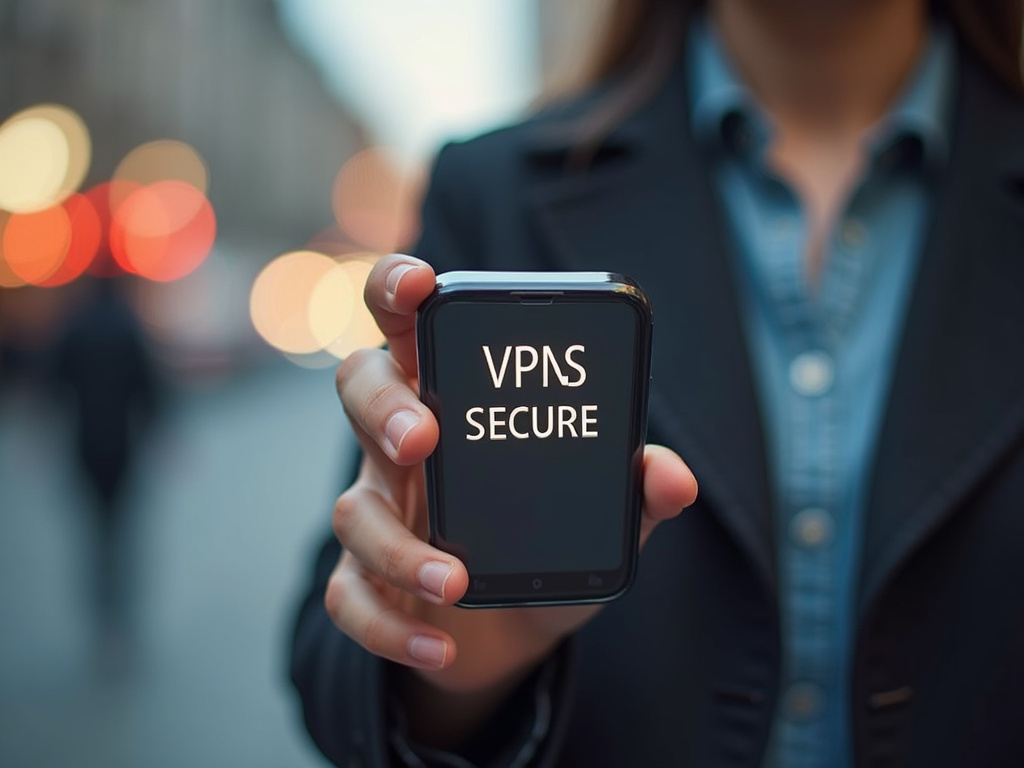VPNs for Airlines: Protecting Passenger Data

Table of Contents
The Critical Role of VPNs in Airline Security
This article delves into the crucial role of Virtual Private Networks (VPNs) in safeguarding sensitive passenger data and ensuring operational security within the airline industry. In an era defined by escalating cyber threats, airlines face immense pressure to protect vast quantities of personal information and maintain the integrity of their complex, interconnected systems. This exploration will highlight the vulnerabilities airlines face, how VPNs mitigate these risks, and the critical considerations for implementing a robust VPN solution tailored to the unique demands of the aviation sector, focusing on leveraging VPNs for enhanced 'passenger security', guaranteeing 'data integrity', and overall 'flight protection'.
In today's hyper-connected world, the airline industry stands as a particularly vulnerable target for cyberattacks. The sheer volume of sensitive passenger data, coupled with the complex, interconnected nature of airline operations, creates a perfect storm for malicious actors seeking to disrupt services, steal information, or even compromise flight safety. Airlines handle a vast array of personal data, from basic contact information and travel itineraries to more sensitive details like passport numbers, credit card details, and even biometric data.
This wealth of information is a goldmine for cybercriminals looking to engage in identity theft, financial fraud, or targeted phishing campaigns. Moreover, the increasing reliance on digital systems for critical functions like flight control, navigation, and maintenance makes airlines increasingly dependent on robust cybersecurity measures. A successful attack on these systems could have catastrophic consequences, ranging from flight delays and cancellations to more serious incidents involving passenger safety.
Therefore, the need for comprehensive and proactive security solutions, such as an 'airline VPN', has never been greater. Traditional security measures, while still important, are often insufficient to protect against the sophisticated and evolving threats that airlines face. Firewalls, intrusion detection systems, and antivirus software can provide a basic level of protection, but they are often bypassed by advanced malware and targeted attacks.
This is where VPN technology steps in as a critical layer of defense, offering a secure and encrypted connection for all data transmitted within and outside the airline's network. By creating a secure tunnel for data traffic, a VPN effectively shields sensitive information from prying eyes, ensuring 'passenger security' and safeguarding the 'data integrity' of critical flight operations. Furthermore, a well-implemented 'VPN for airlines' can enhance the overall security posture of the organization, making it more resilient to cyberattacks and data breaches.
The use of strong encryption protocols and secure authentication mechanisms ensures that only authorized users can access sensitive data and resources. This helps to prevent unauthorized access, data leakage, and other security incidents that could compromise passenger safety and business operations. In addition to protecting passenger data, VPNs can also play a crucial role in securing airline communications with external partners, such as travel agencies, ground handling services, and maintenance providers.
Establishing secure connections with these third-party vendors is essential for maintaining the smooth flow of information and ensuring the integrity of critical business processes. Ultimately, integrating an 'airline VPN' is not merely a technological upgrade but a strategic imperative for ensuring business continuity, maintaining customer trust, and upholding the highest standards of safety and security in the modern airline industry.
The core strength of a VPN lies in its ability to establish a secure, encrypted tunnel for data transmission, effectively rendering sensitive information unintelligible to unauthorized parties. This is achieved through robust encryption protocols, sophisticated algorithms that transform plaintext data into ciphertext, a scrambled format only decipherable with the correct decryption key. Prominent choices for airline security, ensuring the highest standards of 'flight protection', include Advanced Encryption Standard (AES) and OpenVPN.
AES, a symmetric-key encryption algorithm, is widely recognized for its speed, efficiency, and strong security, making it ideal for encrypting large volumes of data. OpenVPN, an open-source VPN protocol, offers a flexible and highly configurable platform capable of supporting various encryption algorithms and authentication methods, providing adaptability to meet the diverse needs of an airline's infrastructure. Implementing these protocols provides resilience against brute-force attacks, man-in-the-middle interceptions, and other common exploits that could compromise 'passenger security' and 'data integrity'.
Beyond encryption, a VPN incorporates stringent authentication measures that verify the identities of users seeking access to the airline's network resources. This ensures that only authorized personnel, such as pilots accessing flight plans, ground crew updating maintenance logs, or customer service agents handling passenger inquiries, can gain entry. Multi-Factor Authentication (MFA) is often integrated, requiring users to provide multiple verification factors, such as a password combined with a one-time code generated via a mobile app or biometric identification.
This layered approach significantly reduces the risk of unauthorized access via compromised credentials, phishing attacks, or social engineering tactics. Moreover, a well-configured 'VPN for airlines' offers granular access control, allowing administrators to define specific permissions and restrictions based on user roles and responsibilities. For instance, personnel handling financial transactions might be granted access to payment processing systems, while other employees have restricted access, mitigating the potential impact of internal threats or accidental data breaches.
This principle of least privilege ensures that users can only access the data and resources necessary for their assigned tasks, reducing the attack surface and minimizing potential damage from security incidents. Furthermore, a VPN contributes significantly to regulatory compliance, particularly with stringent data privacy regulations such as the General Data Protection Regulation (GDPR) and the California Consumer Privacy Act (CCPA). These regulations impose strict obligations on organizations to protect the personal data of their customers, including implementing appropriate security measures to prevent unauthorized access, use, or disclosure.
By encrypting data both in transit and at rest, and by controlling access to sensitive information, an 'airline VPN' helps organizations meet these compliance requirements and avoid potentially severe financial penalties. The choice of a suitable 'VPN for airlines' demands diligent assessment of the organization's specific security priorities. Key factors include the number of concurrent users, the volume and sensitivity of transmitted data, the types of applications and systems requiring protection, and the overall threat landscape.
Selecting a VPN provider with a demonstrable history of delivering reliable, secure, and scalable solutions, along with robust support services, is paramount. The features offered should align with the organization's operational needs and security maturity, incorporating comprehensive logging and auditing capabilities for effective monitoring and incident response.
Understanding the diverse types of VPNs available is crucial for airlines aiming to implement a tailored security solution. Each VPN type offers distinct functionalities, making them suitable for specific operational needs. The primary categories include Remote Access VPNs, Site-to-Site VPNs, and Mobile VPNs, each contributing uniquely to the overall 'flight protection' and 'passenger security' framework.
Remote Access VPNs are paramount for securing connections from employees working outside the traditional office environment. This is especially vital in the airline industry, where pilots, flight attendants, maintenance crews, and management personnel frequently require secure access to internal networks from remote locations such as airports, hotels, or their homes. By establishing an encrypted tunnel between the user's device and the airline's network, a remote access 'airline VPN' shields sensitive data from interception on potentially unsecured public Wi-Fi networks or other untrusted connections.
This ensures that access to flight plans, passenger manifests, maintenance schedules, and other confidential information remains protected, regardless of the user's location. Moreover, remote access VPNs often integrate with existing authentication systems, such as Active Directory or LDAP, to streamline user management and enforce consistent security policies across all access points. This simplifies administration and ensures that only authorized personnel can gain access to the airline's resources.
Site-to-Site VPNs, on the other hand, focus on securely connecting multiple fixed locations within the airline's infrastructure. This is particularly relevant for airlines with geographically dispersed offices, maintenance facilities, data centers, and other operational hubs. A site-to-site VPN creates a persistent, encrypted connection between these locations, allowing for secure sharing of data and resources without relying on the public internet.
This is crucial for maintaining 'data integrity' across the airline's entire network and ensuring seamless communication between different departments and functions. For example, a site-to-site VPN could securely connect an airline's headquarters with its maintenance facility, allowing engineers to access technical documentation, share diagnostic data, and collaborate on maintenance tasks without exposing sensitive information to external threats. Similarly, it can connect regional offices, enabling efficient communication and data sharing between geographically separated teams.
Mobile VPNs are specifically designed to protect mobile devices, such as smartphones and tablets, which are increasingly used by airline personnel for various operational tasks. These VPNs provide a secure and persistent connection, ensuring that data remains protected even when users are moving between different networks or experiencing intermittent connectivity. This is particularly important for flight attendants, who often use mobile devices to access passenger information, manage in-flight services, and communicate with ground staff.
A mobile 'VPN for airlines' secures this communication, preventing unauthorized access to passenger data and ensuring the confidentiality of sensitive operational information. Additionally, mobile VPNs often include features such as automatic reconnection and data compression, which enhance the user experience and minimize data usage. Selecting the appropriate VPN type depends on a thorough assessment of the airline's specific needs, taking into account the number of remote users, the geographic distribution of its facilities, and the types of devices used by its personnel.
A hybrid approach, combining different VPN types, may be necessary to effectively address all of the airline's security requirements.
Enhancing Security and Privacy for Subscription Services with VPNs
Beyond selecting the appropriate VPN type, successful implementation involves careful configuration and integration with existing security infrastructure. This includes meticulous planning, deployment, and ongoing management to ensure optimal 'airline VPN' performance and robust 'passenger security'. A critical aspect of configuration is defining strong encryption policies and protocols.
Airlines should prioritize the use of industry-standard encryption algorithms, such as AES-256, and ensure that all VPN connections are configured to use these algorithms. It's also vital to regularly update encryption keys and protocols to mitigate the risk of vulnerabilities being exploited by attackers. Strong authentication mechanisms are equally important.
Implementing multi-factor authentication (MFA) for all VPN users adds an extra layer of security, making it significantly harder for unauthorized individuals to gain access to the network, even if they manage to compromise a user's password. Furthermore, airlines should consider integrating their VPN solution with existing identity and access management (IAM) systems to streamline user provisioning and de-provisioning, and to enforce consistent access control policies across all systems. Integration with other security tools is also essential.
A 'VPN for airlines' should work seamlessly with firewalls, intrusion detection systems (IDS), and security information and event management (SIEM) systems to provide a comprehensive security posture. Firewalls can be configured to inspect VPN traffic and block any malicious activity, while IDS can detect and alert on suspicious patterns that may indicate a breach attempt. SIEM systems can collect and analyze VPN logs, providing valuable insights into network activity and helping to identify potential security incidents.
Furthermore, airlines should implement robust logging and monitoring capabilities to track VPN usage, identify potential security threats, and ensure compliance with regulatory requirements. VPN logs should be regularly reviewed and analyzed for any unusual activity, such as failed login attempts, unauthorized access attempts, or data exfiltration. In addition to technical configurations, a robust security policy is critical to ensuring the effective use of the VPN.
This policy should clearly define who is authorized to use the VPN, what resources they are allowed to access, and what security protocols they must follow. The policy should also outline the consequences of violating the VPN security policy, such as suspension of access privileges or disciplinary action. Regular security awareness training should be provided to all VPN users to educate them about the importance of security and to teach them how to identify and report potential security threats.
This training should cover topics such as password security, phishing awareness, and safe browsing habits. Ongoing management and maintenance are also crucial for ensuring the long-term effectiveness of a 'VPN for airlines'. Airlines should regularly monitor VPN performance, identify and address any performance bottlenecks, and ensure that the VPN solution remains up-to-date with the latest security patches and updates.
Regular security audits should be conducted to identify any vulnerabilities in the VPN configuration and to ensure that the security policy is being followed. Furthermore, airlines should have a well-defined incident response plan in place to handle any security incidents that may occur. This plan should outline the steps to be taken to contain the incident, investigate the cause, and restore normal operations.
The incident response plan should be regularly tested and updated to ensure that it remains effective. By following these best practices, airlines can ensure that their VPN solution provides a robust and effective layer of security, protecting sensitive passenger data, ensuring the 'data integrity' of critical systems, and maintaining the overall 'flight protection'.
The Future of VPNs in Subscription Based Platforms
The airline industry's digital transformation necessitates a proactive approach to cybersecurity, positioning VPNs as a cornerstone of a comprehensive security strategy. Implementing an effective 'VPN for airlines' is not a one-time project but rather an ongoing process of assessment, adaptation, and refinement to address the ever-evolving threat landscape and ensure consistent 'passenger security'. Regularly evaluating the effectiveness of the existing VPN solution is crucial.
This involves conducting penetration testing and vulnerability assessments to identify any weaknesses in the configuration or infrastructure. These assessments should be performed by qualified security professionals who can simulate real-world attack scenarios and identify potential vulnerabilities before they can be exploited by malicious actors. The results of these assessments should be used to improve the VPN configuration, strengthen security policies, and implement additional security controls as needed.
Staying informed about the latest security threats and vulnerabilities is also essential. Airlines should subscribe to security mailing lists, follow industry news and blogs, and participate in security conferences and workshops to stay up-to-date on the latest threats and vulnerabilities. This information can be used to proactively identify and address potential security risks before they can impact the airline's operations.
Adapting to the changing needs of the business is also important. As airlines adopt new technologies and expand their operations, the VPN solution must be adapted to meet these new challenges. This may involve adding additional VPN servers to handle increased traffic, implementing new security features to address emerging threats, or integrating the VPN solution with new applications and systems.
Regularly reviewing and updating the VPN security policy is also essential to ensure that it remains relevant and effective. The policy should be updated to reflect changes in the threat landscape, new regulatory requirements, and changes in the airline's business operations. The security policy should also be communicated to all VPN users and enforced consistently across the organization.
Another critical aspect of long-term success is fostering a culture of security within the airline. This involves educating employees about the importance of security, providing them with the tools and resources they need to protect sensitive data, and encouraging them to report any suspicious activity. Security awareness training should be conducted regularly and tailored to the specific roles and responsibilities of each employee.
By fostering a culture of security, airlines can significantly reduce the risk of human error and improve their overall security posture. Finally, it's important to measure the return on investment (ROI) of the 'airline VPN' solution. This involves tracking key metrics such as the number of attempted breaches blocked, the reduction in security incidents, and the improvement in regulatory compliance.
These metrics can be used to demonstrate the value of the VPN solution to senior management and to justify continued investment in security. In conclusion, securing passenger data and ensuring operational resilience requires a holistic approach, with VPNs playing a critical role in protecting sensitive information in transit and at rest. By understanding the different types of VPNs available, meticulously configuring and integrating the solution with existing infrastructure, and continuously monitoring and adapting to the evolving threat landscape, airlines can confidently navigate the complex cybersecurity challenges of the modern aviation industry, maintaining 'data integrity' and guaranteeing the 'flight protection' their operations demand.
Furthermore, emphasizing employee training, cultivating a security-aware culture, and consistent policy enforcement, fortifies the benefits from 'airline VPN' implementation, guaranteeing the security standards are elevated to optimally protect sensitive data and support continued secure operations.
Stay Updated
Get the latest VPN news, tips, and exclusive deals to your inbox.




